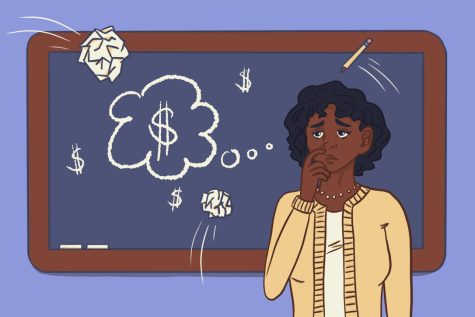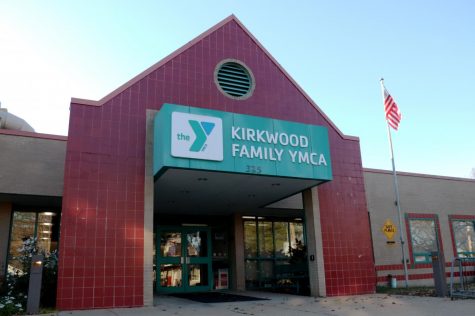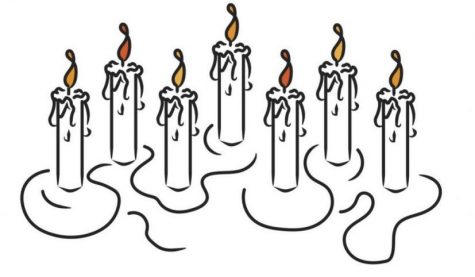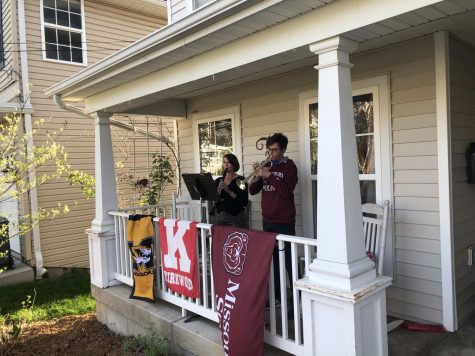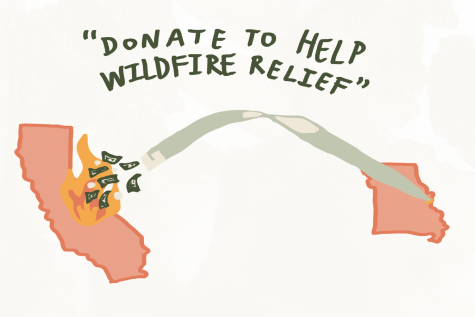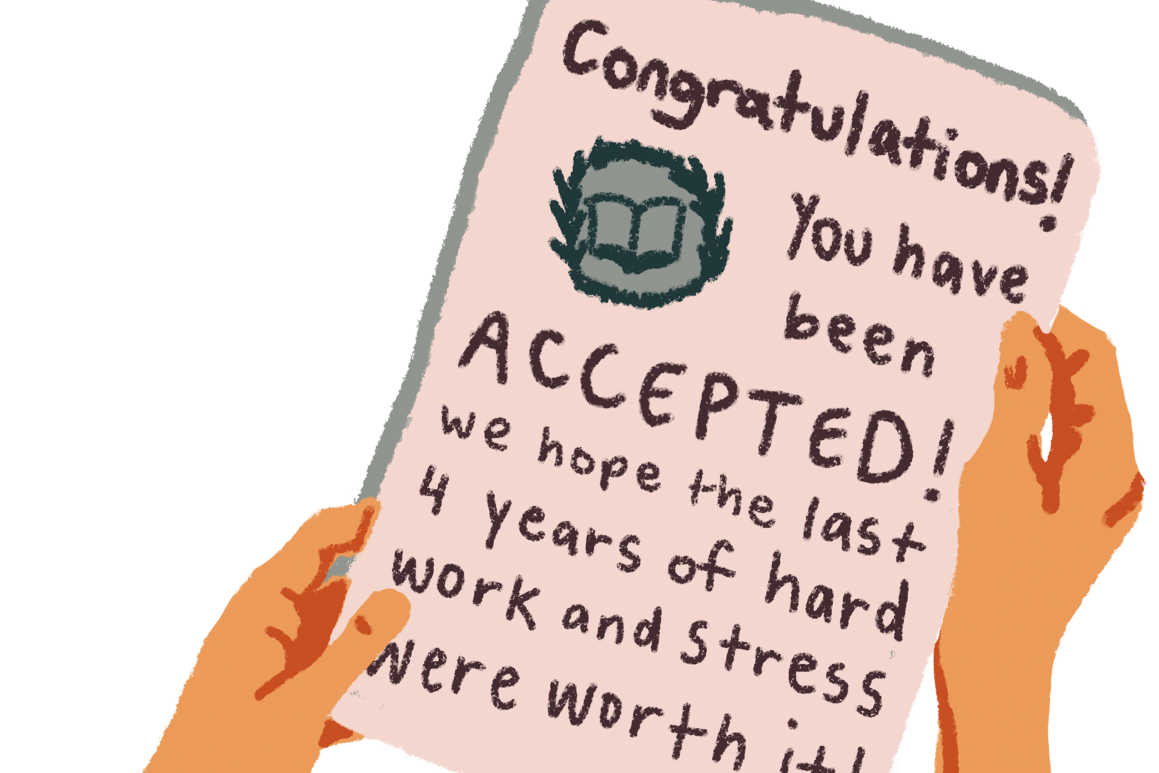Seeking help: what’s next
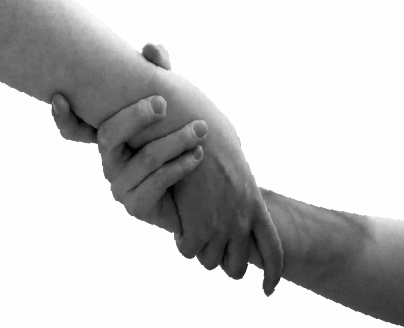
Seeking help: what’s next
We hear the word constantly. Plastered across recent headlines and broadcasted on the 5 p.m. news: assault. Discussion of sexual assault is more prevalent now than it has ever been, but it does not just happen in high profile cases. Anyone can be sexually assaulted, even KHS students. According to Cici Bodet, educational support counselor, after an incident of sexual assault occurs, the victim may be left unaware of the resources they have access to or how the reporting process unfolds.
Students have the resources necessary to get help, Bodet said. Bodet encourages any student who has been sexually assaulted and is seeking help to report the incident to an adult they trust such as a counselor, teacher, coach or other faculty member. Regardless of how the victim chooses to take action, Dr. Mike Havener, principal, said students must recognize the additional support they need rather than trying to deal with the issue on their own. He said failing to report the issue may make the situation worse rather than correct it.
“[Victims] need to know that people are going to do whatever they can to help them,” Havener said. “The bottom line is that no one should keep it inside.”
Once a faculty member is aware of a situation involving sexual assault, they are required by KSD policy to report it to a counselor. This counselor then reports the incident to an administrator. According to Bodet, The Child Abuse and Neglect Hotline is called at this point. If there is enough evidence to pursue the case, it is accepted by the Division of Family Service (DFS). An investigation then takes place within 24 hours in which the family of both the victim and alleged perpetrator are contacted. If the incident occurred on campus, the school remains involved, meaning there can still be in-school punishments for the perpetrator if found guilty. However, if it happened off campus, the police and DFS take over the investigation completely.
“The job of the school is to get the incident reported and then provide help for the student,” Bob Johler, school resource officer, said. “It’s really the police department’s job to investigate it and ultimately get a conviction or make an arrest.”
Although the majority of sexual assault investigations take place outside of KHS, students can still seek emotional support at the school. Especially during an investigation, Johler said reliving an experience of sexual assault is often traumatic. According to Bodet, one of the most difficult parts about sexual assault is the emotional trauma that comes with it.
“The therapy piece is huge,” Bodet said. “When you’re violated it’s hard to trust people and have relationships again. One person might only take a few sessions, and they’ll be able to get through it. [Others could take] years in therapy. There’s a large continuum of individual needs based on an individual’s experience and how they’re able to get through that.”
School counselors are equipped to provide students with the resources they need. If a student does not wish to seek help through the school, Havener encourages them to contact the police or another adult.
“They should take action wherever they feel [is best],” Havener said. “We are 100 percent [willing] to help students that may have [been sexually assaulted] outside of school.”
If a student does not feel their report is being taken seriously, they should follow up and continue to seek help until action is taken. Havener said in some cases miscommunication may cause a report to be perceived differently than intended, and in that case, a student should confide in another adult.
“I would hope that [KHS is] a safe place for them where they feel we can help out,” Bodet said. “If we couldn’t [help the student] then we’d find someone [who] would be able to.”
From this year forward, KHS freshmen are required to attend a presentation by Safe Connection which educates students on how to handle sexual harassment and assault. Bodet put this into place to ensure that students are educated on these issues from a younger age and that this is an important preventative measure.
“There’s always more learning that can be done,” Bodet said. “There’s always more advocating and awareness that can be done for everything, especially with sexual assault awareness. [It] prevents the opportunity for anything to happen in the first place. We need to make sure [students] are informed to make good decisions.”
Your donation will support the student journalists of Kirkwood High School. Your contribution will allow us to purchase equipment and cover our annual website hosting costs.
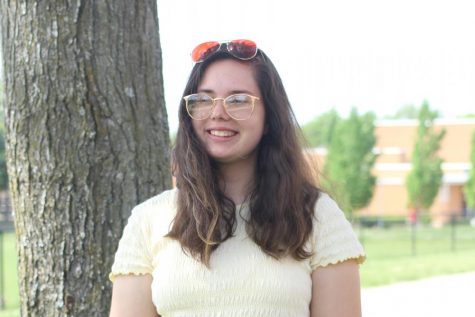
Interests: writing, chillin with Deb Lavender, listening to music
Favorite food: Sushi <3
Favorite quote: "yeehaw" -myself
If you had to be another...
Interests: Kitten Mittens: the Mittens for your Kitten
Favorite food: Pizza
Favorite quote: That rug really tied the room together. -The Dude
What does...



